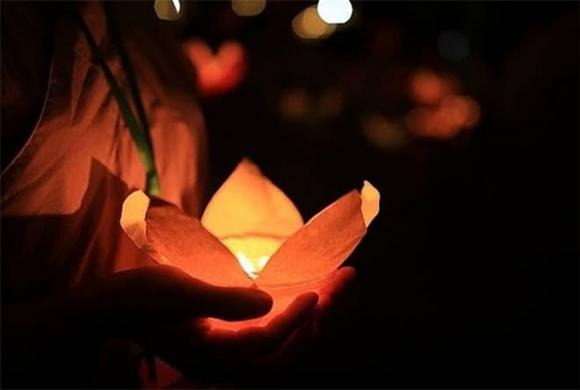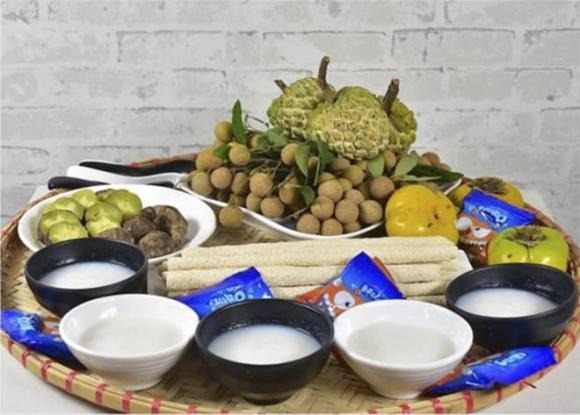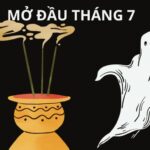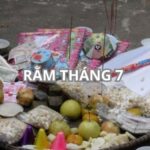What is the Significance of the Seventh Lunar Month Being Called the ‘Month of the Hungry Ghosts’?
The Month of the Hungry Ghosts, lasting from the 1st to the 29th of the seventh lunar month annually, falls between August 4th and September 2nd, 2024, in the Gregorian calendar. This period is deeply rooted in the cultural traditions of Taoism, which originated in China.
According to Chinese folklore, on the second day of the seventh lunar month, the King of Hell opens the gates of the underworld, allowing hungry ghosts to roam the earth, returning to the underworld on the full moon of the same month.
Hence, in popular tradition, earthly beings offer porridge, rice, and salt to the hungry ghosts to prevent them from causing havoc in daily life. In some places, these ghosts are referred to as “good brothers” or “backdoor gods” to appease their spirits. Annually, the Chinese perform rituals to pacify these ghosts on the 14th day of the seventh lunar month.

Annually, the Chinese perform rituals to pacify the hungry ghosts on the 14th day of the seventh lunar month.
However, some experts argue that the origins of this month are not solely tied to China. Other cultures, such as those in India, Cambodia, and Japan, share similar beliefs about this lunar month, and these traditions may predate Buddhism. A popular folk tale narrates that King Yama, the ruler of the underworld, opens the gates of hell and allows some spirits to partake in earthly offerings.
As per YahooLife, the Month of the Hungry Ghosts blends elements from Taoism and Buddhism. In regions with diverse beliefs, varying customs and worship practices exist. Taoism focuses on appeasing wandering spirits, while Buddhism emphasizes filial piety and ancestor worship.
In Vietnam, the tradition of pacifying hungry ghosts is a deeply rooted spiritual belief passed down through generations. The Vietnamese believe that when a person dies, their soul persists and can transform into a hungry ghost, causing disturbances in the living world. Annually, rituals to appease these ghosts can last up to a month, typically held on the 2nd, 15th, or 16th of the seventh lunar month, although some regions may hold them earlier or later, usually in the evening.
It is believed that during this month, the yin energy beneath the earth intensifies, attributed to the wandering spirits of the deceased. Consequently, the seventh lunar month is regarded as an inauspicious time, and many individuals refrain from undertaking significant endeavors such as weddings, construction, purchases, or travel.
How to Seek Peace and Protection During the Month of the Hungry Ghosts
Many families perform peace-seeking rituals during this month to ensure tranquility, smooth undertakings, and safety in travels. Here are some suggestions for seeking peace during this time:
Prepare an offering for the hungry ghosts: You can organize this ritual on any day of the seventh lunar month, but the 2nd and 16th are considered the most auspicious. The offerings can include simple items such as rice crackers, puffed rice, corn, sweet potatoes, boiled eggs, rice, salt, and other foods mentioned earlier.

Many families prepare offerings and perform rituals to seek peace and protection during the Month of the Hungry Ghosts.
Prepare an ancestral offering: These usually include familiar foods such as boiled chicken, sticky rice, white rice, fruit, or dishes that your loved ones enjoyed during their lifetime. It is also customary to visit the graves or the resting places of the deceased to express remembrance and pray for their blessings, as this month is also considered the festival of the dead.
Visit temples: Going to temples, paying respects to the Buddha, making offerings, and doing charitable deeds are ways to pray for family peace during this month.
Adopt a vegetarian diet: You can choose to eat vegetarian meals on the 1st and 15th or, if possible, maintain this diet throughout the seventh lunar month to avoid killing animals and bring good fortune to your family.
Superstitions and Taboos During the Month of the Hungry Ghosts
Avoid Weddings
Tradition advises against holding weddings during this month, as the wedding day is typically a joyous occasion, and the presence of wandering spirits may cause discomfort, leading to conflicts or disharmony in the couple’s life together.
Refrain from Buying Property or Opening a New Business
This month is not considered auspicious for purchasing real estate, starting construction, or opening a new business. It is believed that the spirits may hinder these endeavors, impacting the financial success and luck of those involved in such transactions.
Scientifically, the seventh lunar month often experiences heavy rainfall, and in some regions, storms and landslides may occur, making it a risky time for such activities.
Avoid Cutting Hair and Nails
During this month, especially on the first day, people refrain from cutting their hair or nails. Superstition holds that doing so may lead to financial loss, health issues, and bad luck. Additionally, this period marks a seasonal change with high humidity, creating favorable conditions for bacterial growth and increasing the risk of catching a cold or other health issues.
Do Not Pick Up Loose Change
During the rituals, families often scatter loose change on the roads as offerings to the wandering spirits. It is believed that picking up this money could invite these spirits into one’s home or bring about misfortune.
Stay Indoors at Night
People tend to avoid going out at night during this month due to the belief that there are more wandering spirits about, which could cause disturbances. Additionally, calling out to each other at night is avoided to prevent attracting the attention of these spirits. Many also stay away from lakes, rivers, and other bodies of water as a precaution throughout this month.
The Do’s and Don’ts of the Seventh Lunar Month to Ward Off Evil Spirits and Embrace a Peaceful Month
According to Feng Shui masters, the seventh month of the lunar calendar is a significant spiritual month for Vietnamese people. It is believed that many taboos must be observed during this time to ward off bad luck and bring good fortune to the family.






































